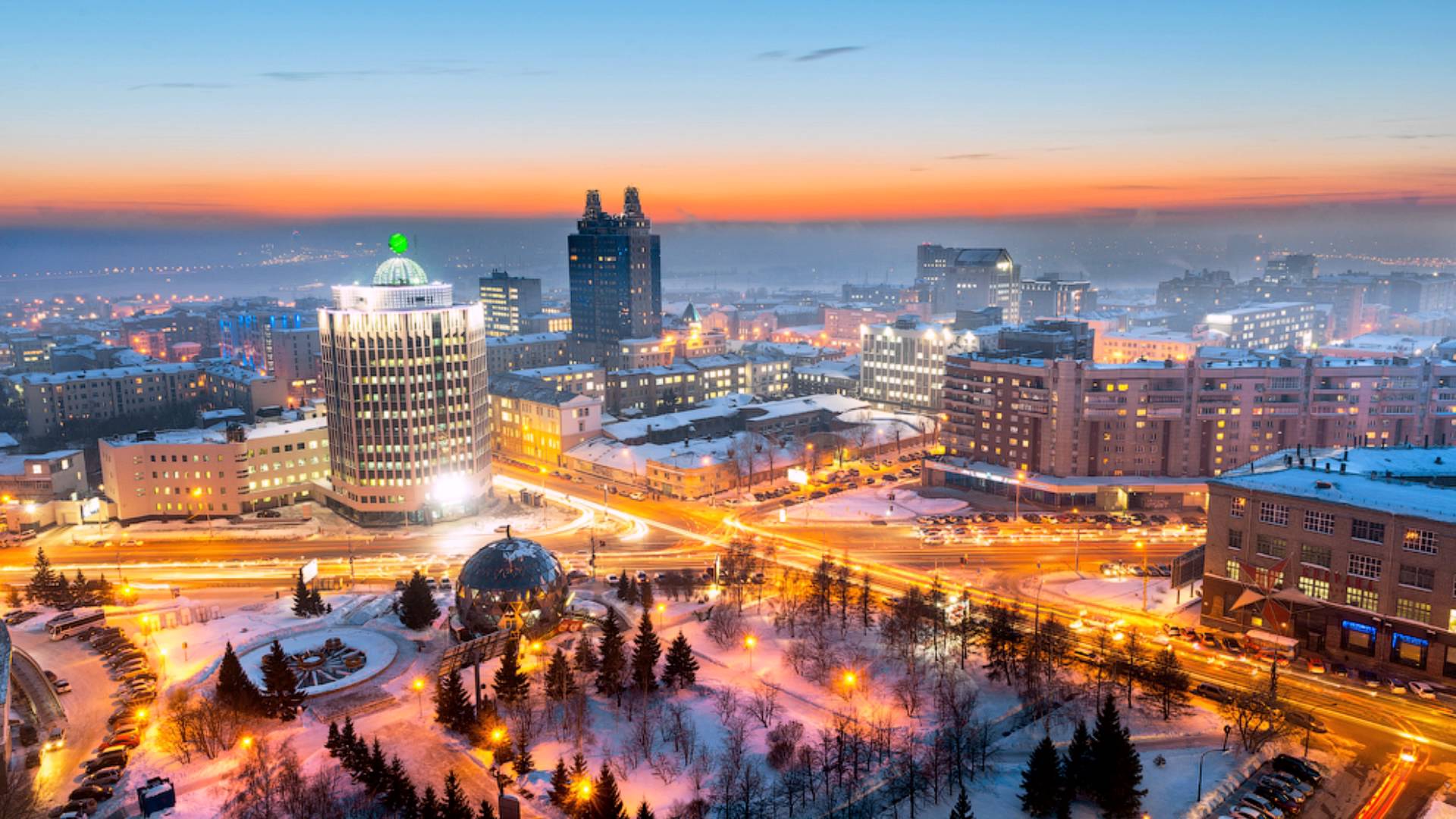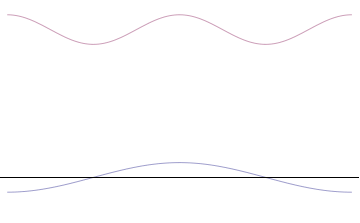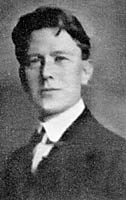|
Walter Barshai
Walter Barshai (born 1955) is an author, scientist and humanitarian, and the founder of the Tairus Research and Production facility within the Russian Academy of Sciences in Novosibirsk, Russia. Barshai was born in Russia, a son of a famed musician, Rudolf Barshai (1924-2010) and painter, Anna Martinson (1928-2012), daughter of a famed Russian Comic Sergey Martinson, but emigrated to the West in 1972. He is a theoretical physicist and the author of a work on the implications of the uncertainty principle on the spontaneous growth of hydrothermal crystals He was the recipient of an honorary award from the Russian Academy of Sciences for his contribution to Russian science in 2005. He is also a classical music producer, recordings including Mahler 5th Symphony with JDP,"Sviatoslav Richter, Richter: last Orchestra performance", Brahms, "Zeltser plays Rachmaninoff", Aleksandr Lokshin, Lokshin and a publisher ("Selected Art Works of Anna Martinson", poetry, etc.). References ... [...More Info...] [...Related Items...] OR: [Wikipedia] [Google] [Baidu] |
Tairus
Tairus (, a portmanteau of Тайско (Thai language, Thai) and Русский (Russian language, Russian)) is a wikt:synthetic, synthetic gemstone manufacturer. It was formed in 1989 as part of Mikhail Gorbachev's perestroika initiative to establish a joint venture between the Russian Academy of Sciences and Tairus Created Gems Co Ltd. of Bangkok, Thailand. Today Tairus is a major supplier of hydrothermally grown gemstones to the jewellery industry. Later, Tairus became a privately held enterprise, operating out of its Bangkok distribution hub under the trade name Tairus, owned by Tairus Created Gems Co Ltd. of Bangkok, Thailand. In the beginning, the team was led by the scientist and developer of the hydrothermal process, the late Alexander Lebedev, whose name was kept secret by the Soviet regime for many years, and Walter Barshai, who was appointed to be the Chairman of the Board of the Joint Venture Tairus. Their objective was to grow and to supply emeralds, rubies, sapphires ... [...More Info...] [...Related Items...] OR: [Wikipedia] [Google] [Baidu] |
Russian Academy Of Sciences
The Russian Academy of Sciences (RAS; ''Rossíyskaya akadémiya naúk'') consists of the national academy of Russia; a network of scientific research institutes from across the Russian Federation; and additional scientific and social units such as libraries, publishing units, and hospitals. Peter the Great established the academy (then the St. Petersburg Academy of Sciences) in 1724 with guidance from Gottfried Wilhelm Leibniz, Gottfried Leibniz. From its establishment, the academy benefitted from a slate of foreign scholars as professors; the academy then gained its first clear set of goals from the 1747 Charter. The academy functioned as a university and research center throughout the mid-18th century until the university was dissolved, leaving research as the main pillar of the institution. The rest of the 18th century continuing on through the 19th century consisted of many published academic works from Academy scholars and a few Academy name changes, ending as The Imperial ... [...More Info...] [...Related Items...] OR: [Wikipedia] [Google] [Baidu] |
Novosibirsk
Novosibirsk is the largest city and administrative centre of Novosibirsk Oblast and the Siberian Federal District in Russia. As of the 2021 Russian census, 2021 census, it had a population of 1,633,595, making it the most populous city in Siberia and the list of cities and towns in Russia by population, third-most populous city in Russia after Moscow and Saint Petersburg. Additionally, it is the largest city in the Asian part of Russia and the most populous city in the country that does not have the status of a Federal subjects of Russia, federal subject. Novosibirsk is located in southwestern Siberia, on the banks of the Ob River. Novosibirsk was founded in 1893 on the Ob River crossing point of the future Trans-Siberian Railway, where the Novosibirsk Rail Bridge was constructed. Originally named Novonikolayevsk ("New Nicholas") in honor of Nicholas II of Russia, Emperor Nicholas II, the city rapidly grew into a major transport, commercial, and industrial hub. Novosibirsk was r ... [...More Info...] [...Related Items...] OR: [Wikipedia] [Google] [Baidu] |
Russia
Russia, or the Russian Federation, is a country spanning Eastern Europe and North Asia. It is the list of countries and dependencies by area, largest country in the world, and extends across Time in Russia, eleven time zones, sharing Borders of Russia, land borders with fourteen countries. Russia is the List of European countries by population, most populous country in Europe and the List of countries and dependencies by population, ninth-most populous country in the world. It is a Urbanization by sovereign state, highly urbanised country, with sixteen of its urban areas having more than 1 million inhabitants. Moscow, the List of metropolitan areas in Europe, most populous metropolitan area in Europe, is the capital and List of cities and towns in Russia by population, largest city of Russia, while Saint Petersburg is its second-largest city and Society and culture in Saint Petersburg, cultural centre. Human settlement on the territory of modern Russia dates back to the ... [...More Info...] [...Related Items...] OR: [Wikipedia] [Google] [Baidu] |
Rudolf Barshai
Rudolf Borisovich Barshai (, September 28, 1924November 2, 2010) was a Soviet and Russian conductor and violist. Life Barshai was born on September 28, 1924, in Labinsk, Krasnodar Krai, Russian SFSR. He studied at the Moscow Conservatory under Lev Tseitlin and Vadim Borisovsky. He performed as a soloist with Sviatoslav Richter and David Oistrakh and as a member of a trio with Mstislav Rostropovich and Leonid Kogan. During his career Barshai won numerous Soviet and international competitions and was the founding violist of the Borodin Quartet in 1945, where he remained a member until 1953. He later studied conducting under Ilya Musin at the Leningrad Conservatory. In 1955, Barshai founded the Moscow Chamber Orchestra, which he led and conducted until he emigrated to the West in 1977. He was the artistic director of the Israel Chamber Orchestra from 1978 to 1981. From 1981 until 1982, Barshai was principal conductor of Vancouver Symphony Orchestra and the Principal Guest ... [...More Info...] [...Related Items...] OR: [Wikipedia] [Google] [Baidu] |
Sergey Martinson
Sergey Aleksandrovich Martinson (; – 2 September 1984) was a Soviet and Russian stage, film and voice actor. People's Artist of the RSFSR (1964). Biography He was born in Saint Petersburg in the family of Swedish and Russian descent. His parents adored theater and took their son to many performances. As a schoolboy, Sergey played in a theatrical studio. After one year of education in the Technological institute, he decided to become a professional actor. At the entrance exams he read Boris Godunov's monologue from Pushkin's play. The exam board roared with laughter, but refused to accept him. He later joined the theatrical institute from a second attempt. Martinson worked in several theaters. In 1924–1941 he played in the Theatre of the Revolution. In 1925–1926, 1929–1933, 1937–1938 he was the leading actor of Vsevolod Meyerhold's theatre. He was cast by Meyerhold in the plays ''The Government Inspector'', ''Mandate'' and others. From 1933 to 1936 he worked in th ... [...More Info...] [...Related Items...] OR: [Wikipedia] [Google] [Baidu] |
Uncertainty Principle
The uncertainty principle, also known as Heisenberg's indeterminacy principle, is a fundamental concept in quantum mechanics. It states that there is a limit to the precision with which certain pairs of physical properties, such as position and momentum, can be simultaneously known. In other words, the more accurately one property is measured, the less accurately the other property can be known. More formally, the uncertainty principle is any of a variety of mathematical inequalities asserting a fundamental limit to the product of the accuracy of certain related pairs of measurements on a quantum system, such as position, ''x'', and momentum, ''p''. Such paired-variables are known as complementary variables or canonically conjugate variables. First introduced in 1927 by German physicist Werner Heisenberg, the formal inequality relating the standard deviation of position ''σx'' and the standard deviation of momentum ''σp'' was derived by Earle Hesse Kennard later that ... [...More Info...] [...Related Items...] OR: [Wikipedia] [Google] [Baidu] |
Hydrothermal
Hydrothermal circulation in its most general sense is the circulation of hot water (Ancient Greek ὕδωρ, ''water'',Liddell, H.G. & Scott, R. (1940). ''A Greek-English Lexicon. revised and augmented throughout by Sir Henry Stuart Jones. with the assistance of. Roderick McKenzie.'' Oxford: Clarendon Press. and θέρμη, ''heat'' ). Hydrothermal circulation occurs most often in the vicinity of sources of heat within the Earth's crust. In general, this occurs near volcanic activity, but can occur in the shallow to mid crust along deeply penetrating fault irregularities or in the deep crust related to the intrusion of granite, or as the result of orogeny or metamorphism. Hydrothermal circulation often results in hydrothermal mineral deposits. Seafloor hydrothermal circulation Hydrothermal circulation in the oceans is the passage of the water through mid-oceanic ridge systems. The term includes both the circulation of the well-known, high-temperature vent waters near the ridge c ... [...More Info...] [...Related Items...] OR: [Wikipedia] [Google] [Baidu] |
Mahler
Gustav Mahler (; 7 July 1860 – 18 May 1911) was an Austro-Bohemian Romantic composer, and one of the leading conductors of his generation. As a composer he acted as a bridge between the 19th-century Austro-German tradition and the modernism of the early 20th century. While in his lifetime his status as a conductor was established beyond question, his own music gained wide popularity only after periods of relative neglect, which included a ban on its performance in much of Europe during the Nazi era. After 1945 his compositions were rediscovered by a new generation of listeners; Mahler then became one of the most frequently performed and recorded of all composers, a position he has sustained into the 21st century. Born in Bohemia (then part of the Austrian Empire) to Jewish parents of humble origins, the German-speaking Mahler displayed his musical gifts at an early age. After graduating from the Vienna Conservatory in 1878, he held a succession of conducting posts of rising ... [...More Info...] [...Related Items...] OR: [Wikipedia] [Google] [Baidu] |
Sviatoslav Richter
Sviatoslav Teofilovich Richter ( – August 1, 1997) was a Soviet and Russian classical pianist. He is regarded as one of the greatest pianists of all time,Great Pianists of the 20th Century and has been praised for the "depth of his interpretations, his virtuoso technique, and his vast repertoire". Biography Childhood Richter was born in Zhytomyr, Volhynian Governorate, in the Russian Empire (modern-day Ukraine), the hometown of his parents. His father, (1872–1941), was a pianist, organist and composer born to Germans, German expatriates, who from 1893 to 1900 studied at the University of Music and Performing Arts Vienna, Vienna Conservatory. His mother, Anna Pavlovna Richter (née Moskaleva; 1893–1963), came from a Russian nobility, noble Russian landowning family, and at one point had studied under her future husband. In 1918, when Richter's parents were in Odessa, the Russian Civil War, Civil War separated them from their son, and Richter moved in with his aunt Tamar ... [...More Info...] [...Related Items...] OR: [Wikipedia] [Google] [Baidu] |
Brahms
Johannes Brahms (; ; 7 May 1833 – 3 April 1897) was a German composer, virtuoso pianist, and conductor of the mid- Romantic period. His music is noted for its rhythmic vitality and freer treatment of dissonance, often set within studied yet expressive contrapuntal textures. He adapted the traditional structures and techniques of a wide historical range of earlier composers. His includes four symphonies, four concertos, a Requiem, much chamber music, and hundreds of folk-song arrangements and , among other works for symphony orchestra, piano, organ, and choir. Born to a musical family in Hamburg, Brahms began composing and concertizing locally in his youth. He toured Central Europe as a pianist in his adulthood, premiering many of his own works and meeting Franz Liszt in Weimar. Brahms worked with Ede Reményi and Joseph Joachim, seeking Robert Schumann's approval through the latter. He gained both Robert and Clara Schumann's strong support and guidance. Brahms stayed ... [...More Info...] [...Related Items...] OR: [Wikipedia] [Google] [Baidu] |
Rachmaninoff
Sergei Vasilyevich Rachmaninoff; in Russian pre-revolutionary script. (28 March 1943) was a Russian composer, virtuoso pianist, and conductor. Rachmaninoff is widely considered one of the finest pianists of his day and, as a composer, one of the last great representatives of Romanticism in Russian classical music. Early influences of Tchaikovsky, Rimsky-Korsakov, and other Russian composers gave way to a thoroughly personal idiom notable for its song-like melodicism, expressiveness, dense contrapuntal textures, and rich orchestral colours. The piano is featured prominently in Rachmaninoff's compositional output and he used his skills as a performer to fully explore the expressive and technical possibilities of the instrument. Born into a musical family, Rachmaninoff began learning the piano at the age of four. He studied piano and composition at the Moscow Conservatory, from which he graduated in 1892, having already written several compositions. In 1897, following the ... [...More Info...] [...Related Items...] OR: [Wikipedia] [Google] [Baidu] |






